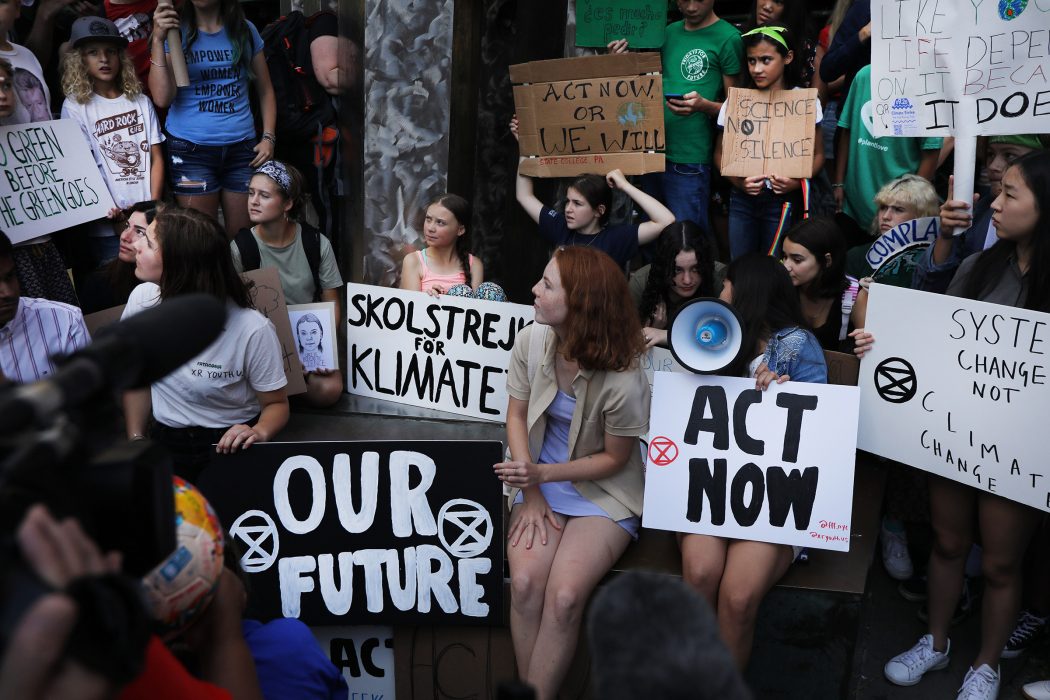In 2016, a study published in the Journal of Consumer Research identified significant discrepancies between men and women regarding green behaviour, arguing that men were less likely to engage in sustainable practices than women. According to this paper, researchers hypothesized that men feared that eco-friendly behaviours would threaten their masculinity.
The study arrived at this conclusion after conducting seven experiments examining 2,000 male and female American and Chinese participants. Based on the results, scientists determined the existence of a “green-feminine stereotype,” in which both men and women perceived eco-friendly products and behaviours as being more feminine than their non-eco-friendly counterparts. Because of this stereotype, male participants would go out of their way to prove their masculinity by engaging in non-environmentally friendly behaviours after feeling emasculated, implying that environmental harm could occur simply by making men feel feminine.
…male participants would go out of their way to prove their masculinity by engaging in non-environmentally friendly behaviours after feeling emasculated…
Since then, other research has revealed similar disparities, further demonstrating this purported “eco gender gap.” Mintel, a market intelligence agency, first coined this term after examining male and female populations in Britain in 2018 and finding that 71% of women were committed to living ethical lifestyles, compared to just 59% of men. Furthermore, 65% of women were encouraging their peers to adopt such lifestyles while only 56% of men were doing the same. Eco-friendly habits in general appeared to be dominated by women; compared to the male population studied, women were reportedly more involved in recycling, adopting plant-based diets, conserving water, and avoiding food waste.
“Mintel data highlights something of a [sic] ‘eco gender gap’ revealing that men are less likely to pursue environmentally-friendly behaviours than their counterparts,” says Jack Duckett, Senior Consumer Lifestyles Analyst at Mintel. He notes that “there is also clearly a wider disconnect between men and environmental issues, which, more troublingly, could be due to men feeling that caring for the environment somehow undermines their masculinity.”
So what could be some of the reasons behind this gap? Research from the mid-1990s to early 2000s attributed this discrepancy to differences in personality, arguing that women are more socialized to care about others and assume future-focused perspectives. In this way, women, as caregivers of society, became the de facto caregivers of the planet. As well, experts have also argued that, because men have historically benefited from governing bodies and institutions, they are more likely to trust that these same organs will resolve large-scale issues such as climate change whereas women, who tend to have less trust in such institutions, are more likely to address such issues themselves. Others believe this has to do with gender norms and the asymmetrical distribution of household unpaid labour.
As well, experts have also argued that, because men have historically benefited from governing bodies and institutions, they are more likely to trust that these same organs will resolve large-scale issues…
“When you think about it, it’s not that surprising,” says Rachel Kennerley, campaigner of environmental charity Friends of the Earth. “Recycling, preventing food waste, taking cloth bags to the store, even protecting resources like water, and making sure there is food during times of drought – these tasks are closely associated with running the home, which has traditionally been seen as a woman’s domain.”
As for developing a solution to address this gap, the majority of proposed strategies have primarily focused on marketing. James Wilkie, one of the authors behind the 2016 study, argued that, since men appear to be more concerned with maintaining their gender identity than women, marketing green products in a way that affirms their masculinity and thus alters the perception of such products as feminine could make men feel less threatened when consuming them. This could be done by rendering brands more masculine with “manlier” iconography, colours, text, and spokespeople. Certain brands have already had success in this form of branding. Jack Daniel’s, for example, incorporates sustainability into many aspects of its business in a way that still paints the brand as rugged and masculine. Bulldog, a men’s skincare company, has also been successful in integrating green strategies without sacrificing its male audience.
However, some argue that focusing on rebranding sustainable products to be more masculine will simply pander to, and therefore exacerbate, these gender stereotypes. Instead, it could be more important to expose this unconscious bias that views femininity as weak, lesser, and negative. Clearly, this green-feminine stereotype is deeply ingrained in society as a whole, given that both men and women have admitted to viewing these behaviours as feminine. Since men tend to experience greater psychological damage or face harsher repercussions when not conforming to gender norms, it is unsurprising that men would be more averse to any behaviours that could threaten their masculinity. To counter this, what could be more effective than attacking the root of the cause, and eliminating these long outdated biases entirely?








